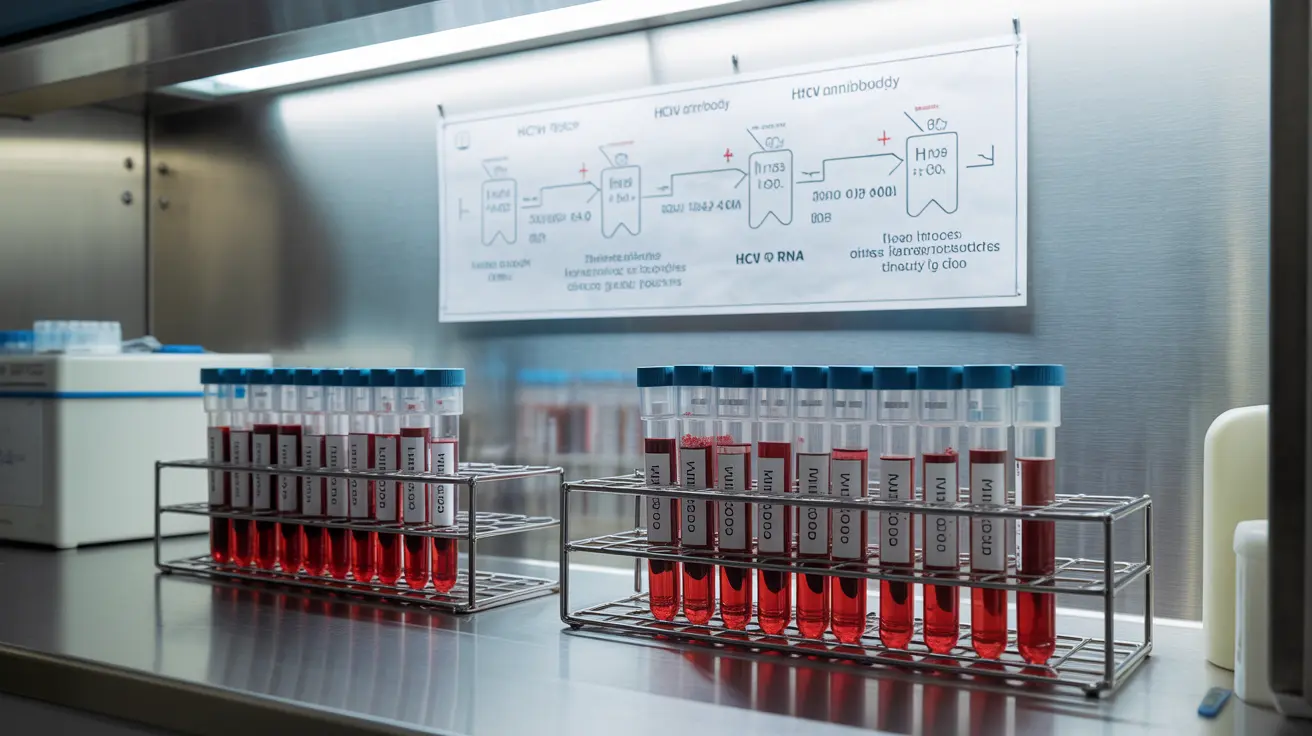Receiving a reactive HCV antibody (HCV Ab) test result can be concerning and raise many questions about your health. This comprehensive guide will help you understand what a reactive result means, the next steps you should take, and what to expect during follow-up testing and potential treatment.
It's important to remember that a reactive HCV Ab test doesn't automatically mean you have an active hepatitis C infection. Let's explore what this test result means and the important steps that follow.
What a Reactive HCV Antibody Test Means
A reactive (positive) HCV antibody test indicates that your body has been exposed to the hepatitis C virus at some point in your life. The presence of these antibodies shows that your immune system has responded to the virus, but it doesn't necessarily mean you currently have an active infection.
There are several possible scenarios that could lead to a reactive result:
- Past infection that your body has cleared naturally
- Current active hepatitis C infection
- Recent exposure to the hepatitis C virus
- Rarely, a false-positive result
Next Steps After a Reactive Result
Following a reactive HCV antibody test, your healthcare provider will typically recommend:
HCV RNA Testing
This crucial follow-up test, also known as a viral load test, determines whether you have an active hepatitis C infection. It measures the amount of virus present in your blood, if any.
Additional Blood Tests
Your doctor may order liver function tests and other blood work to assess your overall liver health and determine if there's any liver damage.
Understanding Your HCV RNA Test Results
The HCV RNA test results will fall into one of two categories:
Positive HCV RNA
This confirms an active hepatitis C infection that requires medical attention and potentially treatment. Your healthcare provider will discuss treatment options and monitor your liver health.
Negative HCV RNA
This indicates that while you were exposed to hepatitis C in the past, you don't currently have an active infection. This could mean your body cleared the virus naturally or you were successfully treated in the past.
Treatment Options for Confirmed Hepatitis C
If you have a confirmed active infection, modern treatments are highly effective:
- Direct-acting antiviral medications (DAAs)
- 8-12 week treatment courses
- Success rates over 95%
- Minimal side effects compared to older treatments
Frequently Asked Questions
What does a reactive HCV antibody (HCV Ab) test result mean for my health?
A reactive HCV antibody test indicates past exposure to the hepatitis C virus. It doesn't necessarily mean you have an active infection, but it does require follow-up testing to determine your current hepatitis C status.
What are the next steps after receiving a reactive HCV antibody test result?
The essential next step is getting an HCV RNA test to check for active infection. Your healthcare provider will also likely order liver function tests and provide guidance based on these results.
How can I tell if I have an active hepatitis C infection if my HCV antibody test is reactive?
An HCV RNA test (viral load test) is the only way to definitively determine if you have an active hepatitis C infection. This test measures the amount of virus present in your bloodstream.
Will a reactive HCV antibody test always mean I am contagious or have chronic hepatitis C?
No, a reactive antibody test alone doesn't mean you're contagious or have chronic hepatitis C. Only people with positive HCV RNA tests (indicating active infection) can transmit the virus to others.
What kinds of treatments or follow-up care are available if I have a confirmed hepatitis C infection?
Modern treatments for hepatitis C, particularly direct-acting antivirals (DAAs), are highly effective with cure rates exceeding 95%. Treatment typically lasts 8-12 weeks, with regular monitoring of your liver health during and after treatment.




